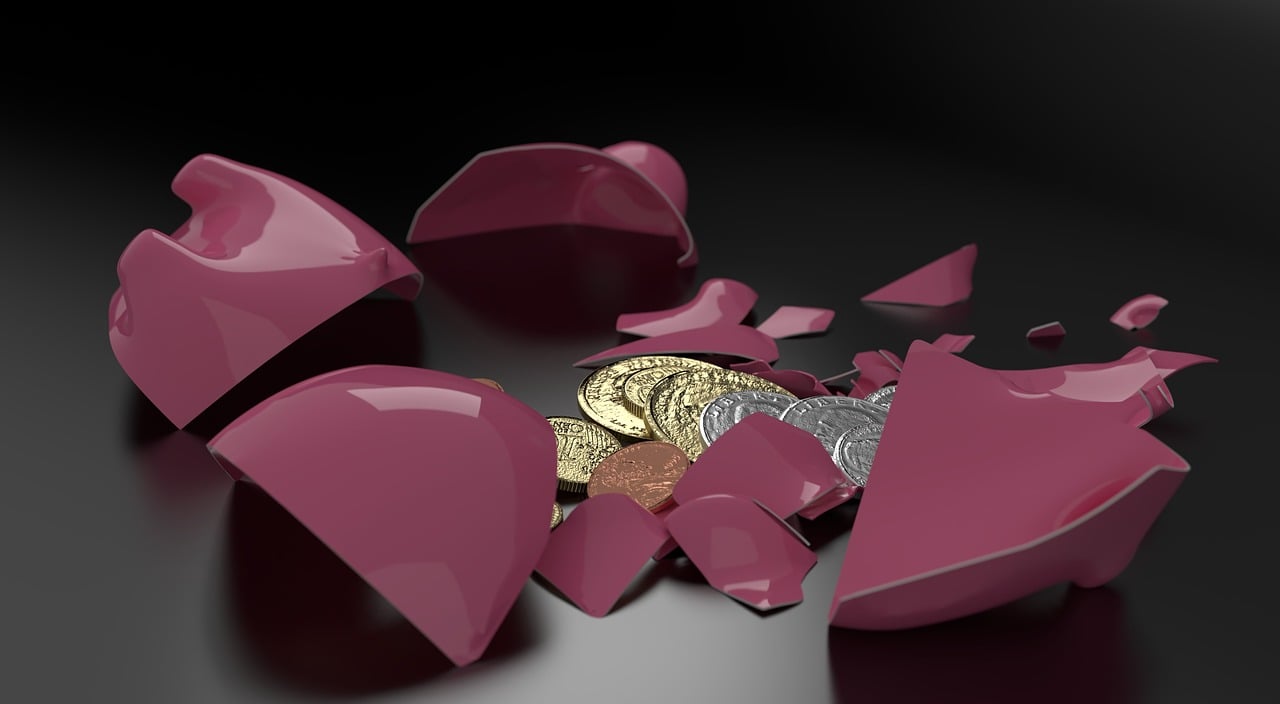Keeping your eggs in one basket can result in theft or breakage of all of them. To reduce those risks, you should allocate the eggs to various baskets, placed in different locations. Also, the baskets should be made of different materials to protect the content. The same philosophy applies to protecting your net worth.
Imagine having your entire net worth in Bitcoin or a single property. Then, Bitcoin drops to a thousand dollars or a war breaks out in the country where your fancy penthouse is located. In my opinion, neither of those investments are good decisions. I’m not saying that you shouldn’t own any Bitcoin or not buy a penthouse if you have the money, but I would never pour most or all of my money into either of those investments.
In fact, I wouldn’t put my entire net worth into any single asset. It’s too risky.
One of the first things you’ll learn in an investment class is diversification. It’s important for several reasons, especially its application. That’s the part that most people struggle with. They’re not sure if they have diversified enough. But it’s also possible to diversify too much. So what’s the right balance?
I’ll give you my take on how I handle diversification. It might be useful to you.
Rule no. 1 of Investment Club: You Talk about Investment Club
I’m not suggesting that you mention to anyone what you intend to invest in, but consult professionals to gather information. Before deciding on the different assets to invest in, ask people in the game about the fees or expenses involved. Most beginner investors focus mostly, if not solely, on the returns. But they fail to find out about the costs.
High fees or expenses can significantly reduce your profits. In some cases, they can lead to losses. Although returns are important to know, so are expenses.
I found that the best way to know all the fees and expenses involved is by getting the inside scoop. And the way I did that before I invested in coffee vending machines was by working for a vending machine company. I saw all the hidden fees that people who walk past a vending machine would never know about.

If you’re thinking about building a real estate portfolio of apartments to let out, it might be a good idea to find employment in an agency that provides such a service. Early on in your employment, you’ll see all the expenses involved in renting out apartments and the amount of time required to clean the place, delays in issuing keys when a guest arrives late and the cost of damages that tenants cause. This information is invaluable and could mean the difference between engaging in a fruitless venture that could drain you financially and saving a lot of money.
You can use this approach for most investments. Sure, you might not need to find employment as a broker before investing in the stock market, but the point is to gather as much intel to make an informed decision.
My Diversification Strategy
When I first began inquiring about the different investments, I found that the stock market provided lower returns and higher fees than cryptocurrencies. So I decided to invest in a new, highly volatile market—cryptocurrency. Big mistake.
Most beginner investors don’t understand how fundamental factors affect asset prices, not to mention how to read charts. I used to be one of those. As a typical newbie, I also fell into the narrative trap. Rumours circulated that the market anticipated good news about a certain cryptocurrency that would extend its bull run. And this was after the specific crypto had already spiked more than 1,000%. But you buy into the hype as a beginner. Now, I know better.
To make matters worse, I used most of my savings to invest in just one particular cryptocurrency while having debt. It turned out that the price of that crypto had reached the top before the news came out. Over the next few months, I watched the price tumble 90% since my investment.
I was devastated. I was convinced I found a magic bullet that would enable me to pay off all my debt and have savings for the first time in my life.
Today, cryptocurrencies are about 15% of my portfolio. Even that’s still too high. I want to get it down to about 5% and will do so in the near future.
How Did I Diversify?
My portfolio consists of investments in financial markets, machinery and cash. Yes, you should keep cash as well for periods of market downturns. That’s the best time to get assets on sale. As for cash, it’s not a good idea to keep all of it in one bank. What if that bank disables withdrawals? It’s happened before, and you don’t want your money in the hands of scummy bankers.
Not only is it a good idea to split your money between different banks, but it could also be located in different countries. This also applies to assets such as real estate. If your entire real estate portfolio is located in one country and a war breaks out or an unfavourable presidential candidate is elected, it could significantly devalue your assets.
As for financial markets, I found that investing in different asset classes works well. Certain assets have an inverse relationship. As an example, when stock prices decrease, the gold price usually increases. If you had invested in both in such an instance, the losses of one asset would be offset by the profitable asset. If you had invested only in stocks, then you’d make a loss.

If you plan to invest in the stock market, I found that it’s valuable to invest in companies in different industries. Investors who made up their entire portfolio of tech stocks profited significantly during the tech boom in the ’90s, but the subsequent dot-com bubble tanked their portfolios by almost 80%.
Another option is to invest across the different global stock markets. As an example, you could invest in a US tech company and a British media company. That gives you exposure to different sectors and regions, which lowers your risk.
Whatever assets you decide to invest in, make sure they’re not in the same basket. Also, find out from experts the potential returns and the costs.
CHECK OUT MY NEW BOOK — From Homeless to Debtless with Savings





Leave a Reply